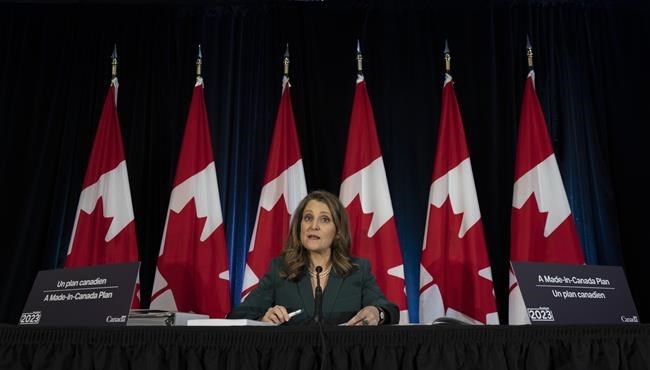OTTAWA — Prime Minister Justin Trudeau's Liberal government plans to launch a National Counter-Foreign Interference Office, amid ongoing scrutiny of allegations that Beijing interfered in recent federal elections.
Tuesday’s federal budget earmarked $56 million over five years for measures to combat foreign interference, threats and covert activities.
The Mounties are slated to receive most of that money before April 2026 in support of efforts to investigate threats and proactively work with diaspora communities at risk of being targeted by foreign interference.
The budget document says the new office will be created within the Department of Public Safety, but it does not include a timeline for its launch.
The measures come as former governor general David Johnston takes up his role as a special rapporteur, with a mandate to sort out whether Trudeau should call the public inquiry demanded by the three main opposition parties.
The Liberals are also proposing legislative amendments that would task a federal banking watchdog with determining whether large financial institutions "have adequate policies and procedures to protect themselves against threats to their integrity and security, including protection against foreign interference."
The Office of the Superintendent of Financial Institutions would also be given the powers to take control of a bank "where there are national security risks."
Ottawa also plans to beef up its money-laundering regime and policies tackling terrorism funding through a series of proposed amendments.
The changes would follow an internal assessment that found weaknesses in how departments share information, few prosecutions being pursued and gaps how the rules apply to lawyers.
The proposed legislative changes would enact whistleblower protections and crack down on people who avoid reporting requirements by using a series of small transactions.
Ottawa would also compel banks to report on assets held by people who are subject to sanctions, beefing up existing rules that generally only compel such reporting on clients suspected of terrorist financing and money laundering.
The budget says the Liberals plan to implement a Federal Beneficial Ownership Registry by the end of this year, after recently introducing legislation to that effect, with a mandate to be publicly shared by this fall.
The Liberal government also says it aims to update the public this fall on whether Fintrac should be tasked with countering sanctions evasion.
In another measure related to terrorist financing, the budget allocates $16 million over the coming two years to implement proposed legislation aimed at allowing humanitarian groups to work in Afghanistan.
Currently, aid workers cannot operate in that country without paying taxes to the government and therefore running the risk of being prosecuted for financially supporting the Taliban.
The bill proposes a regulatory program to issue exemption permits. Officials said the funding would be needed to assess applications for permits and probe the risk of the exemptions benefiting terror groups.
This report by The Canadian Press was first published March 28, 2023.
Dylan Robertson, The Canadian Press



